We Are Kicking-Off the 2nd SPP SeaLevel Phase Era!
This week 10-13 February 2020, the entire SPP SeaLevel community from both phases is meeting in Bonn, Germany for the 3rd Annual/Kick-off Meeting, which marks officially the closure of the 1st phase and the beginning of the 2nd phase of the program. The Annual Meeting follows the 2nd SPP SeaLevel Early career Scientists (ECS) meeting/Winter School, which took place yesterday in Bonn which aimed to further support the young scientists of the program to their scientific training and growth through a range of specifically dedicated keynote presentations to the SPP ECS community, but also to their professional career development and networking.
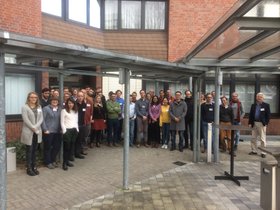
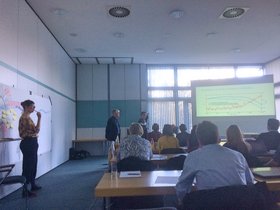
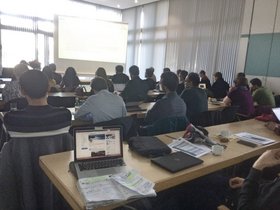
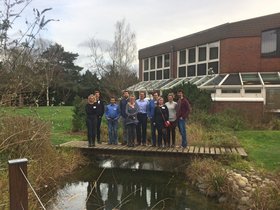
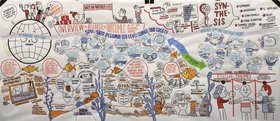
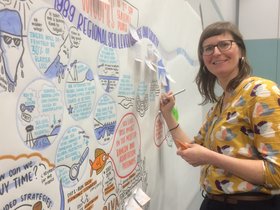
This year Annual SPP Meeting is offering the opportunity to overview and summarize the outcomes and achievements of each project and of the program as a whole, and to set up the new scientific aims and milestones for the following years during the 2nd funding phase of the SPP-1889 SeaLevel span period. In this way, all natural and social scientists from the 1st phase are having the chance to interact with, exchange and merge knowledge and expertise with those from the new projects and welcome them to the SPP SeaLevel networking.
Internationally well-known experts on sea level research, including Benoit Meyssignac (LEGOS, France), Ben Marzeion (University Bremen, Germany), Zita Sebesvari (United Nations University, Germany) and Marjolijn Haasnoot (Deltares, The Netherlands) are also contributing significantly to this SPP Annual Meeting with keynote presentations, connecting the innovative interdisciplinary research work within the SPP SeaLevel program with the wider scientific world, and the rest of the current, most state-of-the-art sea-level change and societal impacts research. Among the sea-level research topics covered in this keynote talks, are the improvement of sea-level measurements and the linkage with the global water-energy cycle, several aspects related to the assessment and solution/adaptation pathways, setting thresholds for adaptation, challenges and uncertainties, implications for the coastal and low-lying islands communities, and more, while providing insights from several case studies as examples in each case.
In this Annual Gathering the SPP SeaLevel Coordination is also bringing forward another innovative Outreach expression in communicating the complexity of sea level research and the interdisciplinarity of the SPP program itself to different audiences, by connecting science and art together: Graphic Recorder Ms. Birgit Jansen (Bikablo company) is also joining the first 2 days of the Annual Meeting, and by following the scientific presentations and discussions of all projects but also interviewing the scientists themselves, she is simultaneously illustrating graphically the science involved within the SPP SeaLevel program on a 3-m poster. The graphic recording is summarizing both phases of the SPP-SeaLevel program, its structure and interdisciplinary character but also providing an overview of the different components needed to be accounted for and brought together in order to more comprehensively approach and address the sea level change issue, its range of societal impacts, adaptation/mitigation pathways and implementations, etc. As a following step, the graphic recording will be available and will be exhibited to other future SPP SeaLevel events and workshops, sea level meetings and other scientific conferences and in their booth exhibitions, such as in EGU and AGU, as well as equally, to university affairs and open days, and other public and school events related to climate change and sea-level rise, to provide an alternative and more effective after all way to further communicate the SPP SeaLevel research to different audiences and ages, in addition to the rest of the wide scientific community. (You can download a copy of the entire SPP-1889 SeaLevel Graphic Recording 2020 here, and zoom in parts of it here: image 1, image 2, image 3, image 4, image 5.)
The Annual Meeting followed the 2nd Early career Scientists (ECS) meeting/Winter School on 10th February in Bonn, Germany supporting the entire young researchers community within the program to strengthen their background knowledge and understanding on sea-level, the benefits of the synergy of disciplines and expertise within the SPP SeaLevel program, but also to get informed on available funding opportunities and how to write successful proposals to assist, prepare and support them further to their scientific career and professional networking, and their following steps after the end of their PhD/postdoc research projects within the SPP SeaLevel program. The ECS Meeting agenda included several keynote presentations from principal investigators of SPP projects from the 2nd phase of the program, specifically Ben Marzeion (Uni-Bremen), Roelof Rietbroek (IGG/Uni-Bonn) and Boris Braun (Uni-Cologne), while Nassos Vafeidis (Uni-Kiel) and Anna-Katharina Hornidge (Leibniz ZMT, Bremen) were preventing from joining the meeting on Monday 10th February after all, due to train disruptions over Germany due to extreme stormy weather conditions.
A very productive and interesting week is on with an extensive agenda, including several more presentations from the projects of the 2nd funding phase of the program, presenting their planned research in the years ahead and while being aligned within one or more of the three main scientific themes of the SPP 2 phase SeaLevel program, i.e. “Contributions to Global and Regional Sea Level Changes”, “Regional Biophysical and Societal Impacts in N. Europe and S.E. Asia/Indonesia”, and “Adaptation, Decision Analysis and Governance”; overview keynote talks regarding these three thematic research theme directions of the SPP SeaLevel program; as well as several discussions spanning from scientific topics to funding perspectives on sea level research together with DFG and BMBF representatives, aiming to inform the entire SPP SeaLevel community on funding opportunities coming soon in the following years in Germany and internationally, and thus to assist further all SPP members to continue their innovative research work after the end of the SeaLevel program, but hopefully still in line with its inter- and transdisciplinary character and approach.
